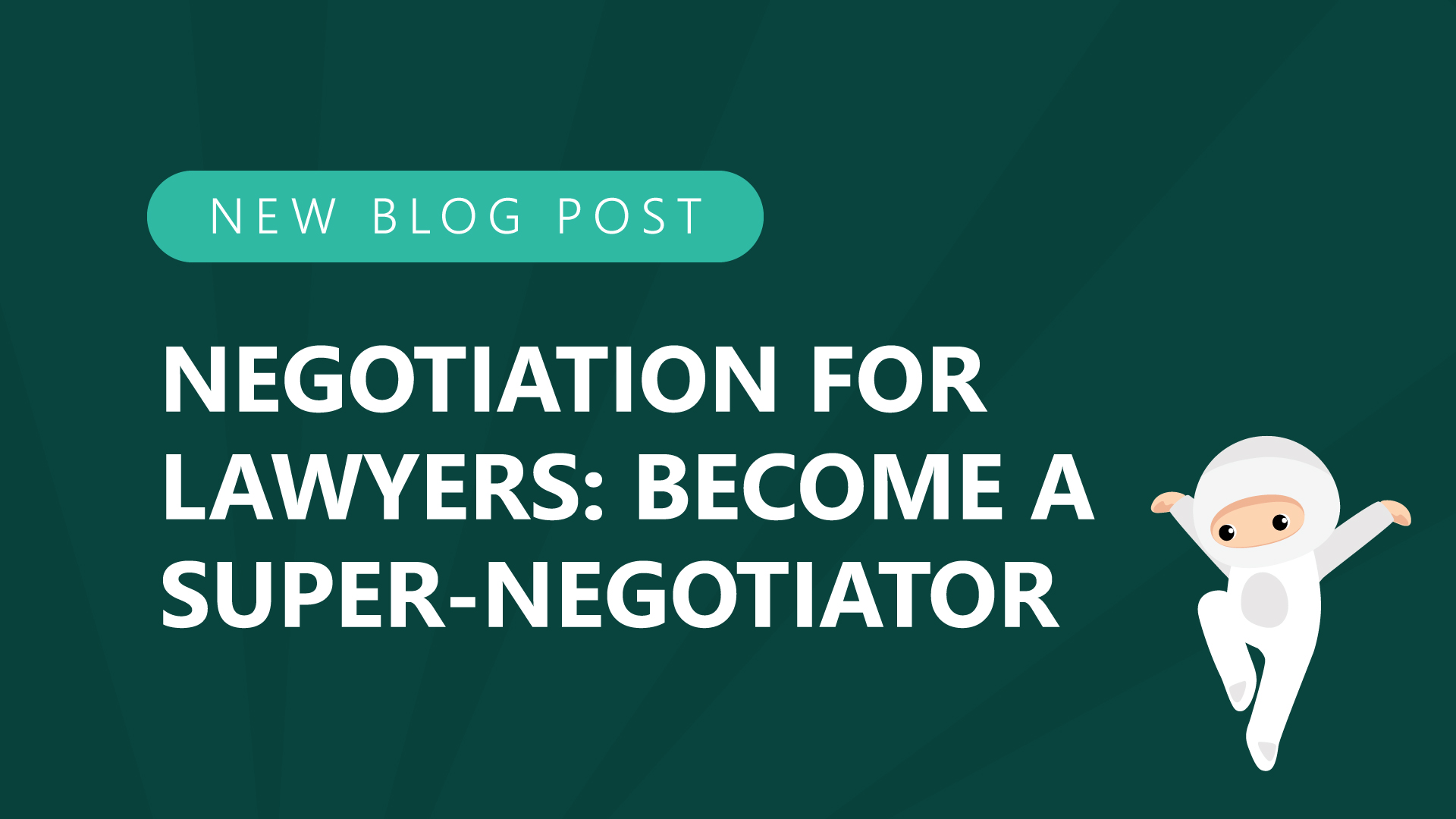In episode 138 of the Negotiations Ninja podcast, Dr. Claudia Winkler joined me to talk about negotiation for lawyers. One of the topics we touched on was that many lawyers aren’t properly trained in negotiation tactics—and many completely dislike negotiations in general. Claudia believes it’s largely due to the lack of training. We conversed about why negotiations tend to fail. We also talk about how to manage your emotions so that you can become a skilled super-negotiator. If you want to learn more—keep reading!
The reason WHY many negotiations derail quickly
Negotiation for lawyers—especially inexperienced lawyers—can be difficult to navigate. It helps to learn what some of the contributing factors are that make or break a negotiation. Claudia has determined that reciprocity is the largest contributing factor to a derailed negotiation.
It’s because mirror neurons come into play: Humans tend to reciprocate not only positive emotions but especially negative emotions and behavior. If your counterparty immediately sets the tone with aggression, is unfair in their assumptions, or shows a lack of respect, etc. it’s easy to fall into the same behavior.
Reciprocity—when coupled with negative behaviors—can create a downward spiral where both parties lose value. There is no longer a sharing of solutions or creative thinking. Nor is there an emphasis on a win for both sides. The problems become the key driver instead of the solution. Lawyers need to learn how to manage their emotions to excel with legal negotiations. So how do you do that?
Negotiation for Lawyers 101
A successful negotiation for lawyers hinges on the ability to manage your emotions. It is a learned discipline that must be cultivated over time. Claudia emphasizes that it starts by creating awareness. In the first 30 seconds to two minutes of a negotiation you can tell where the negotiation is heading based on the language, body language, and demeanor of the parties involved. The imperceptible microexpressions, postures, and word usage are powerful forces. They have the power to drag your negotiation down or move it in a positive direction.
The only thing you have complete control over in the negotiation process is YOUR behavior—but you must be aware of it.
After you learn to cultivate an awareness of your emotions, the only way to get better is to practice. Claudia recommends practicing at scale. She’ll have someone engage in a negotiation at the front of the room with the group watching. You can see how the negotiation escalates and how easy it is to fall into aggressive behavior.
Put yourself into good-cop/bad-cop situations to see how each tactic impacts the process. You can negotiate at home with your family. Apply tactics and strategies when you’re in an argument with a loved one. The be-all-end-all is practice, practice, practice.
Overcome Psychological hurdles
In every negotiation for lawyers or other professionals—in times of crisis or not—there will be psychological hurdles to overcome. One of the largest obstacles that Claudia sees frequently is that of loss-aversion. Losses are always more painful than gains are pleasant. Currently the world is enmeshed in the COVID-19 pandemic. Most businesses are struggling to adapt to unprecedented circumstances.
They are overly focused on loss-aversion—and rightly so. Many business owners fear they will lose their businesses completely. Everyone feels as if they’re in a lose-lose scenario where they have to cut their losses to survive. As a negotiator, you have to make sure you don’t fall trap to this psychological hurdle. It often ends in a deadlock that doesn’t serve either side.
A skilled lawyer must learn how to steer away from a focus on loss-aversion and towards a solution-based model. To learn more about negotiation tactics for lawyers from Dr. Claudia Winkler, listen to episode 138 about legal negotiation on the Negotiations Ninja podcast!

